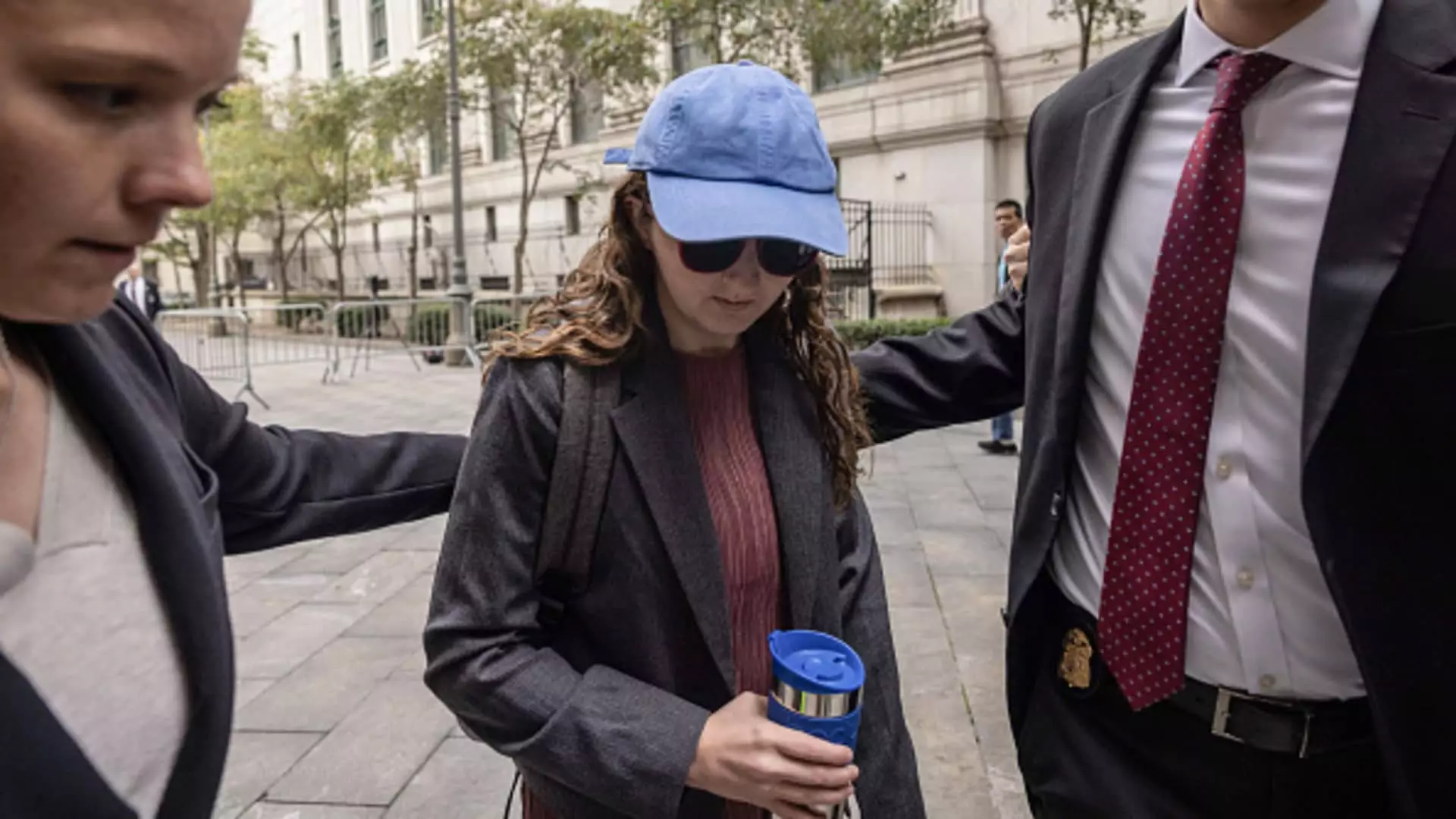Caroline Ellison, once a prominent figure in the cryptocurrency industry, recently found herself on the receiving end of a hefty sentence. The former CEO of Alameda Research, which was intricately linked to the now-defunct cryptocurrency exchange FTX, was sentenced to two years in prison by a federal judge in New York. This decision marks a significant turning point not just in Ellison’s life but also in the broader narrative of the FTX scandal, which unraveled in spectacular fashion, leading to billions of dollars in losses for investors and a tarnished reputation for many key players.
The Trail of Deception
Ellison’s precarious journey began with her participation in widespread fraud that contributed to the downfall of FTX, a company that once boasted a valuation of $32 billion. Following FTX’s bankruptcy in late 2022, Ellison negotiated a plea deal, admitting guilt to charges of conspiracy and financial fraud. In stark contrast to her plea agreement, her former partner Sam Bankman-Fried chose to fight the charges against him, resulting in a conviction on all counts and a sentence of 25 years. This divergence in legal strategies highlights the critical choices faced by individuals embroiled in high-stakes legal battles, particularly in white-collar crimes where cooperation can be the key to leniency.
Ellison’s sentence stands in sharp contrast to the probationary recommendations proposed by the federal Probation Department, demonstrating the complexities of judicial discretion in white-collar crime cases. The judge, Lewis Kaplan, opted for a more severe punishment despite calls from Ellison’s defense team for a sentence involving only supervised release. The judge’s decision may suggest an attempt to reinforce the seriousness of financial crimes and signal to other potential offenders that cooperation does not guarantee a way out of prison.
Furthermore, the financial ramifications of her actions were underscored by the forfeiture judgment of $11 billion, an astronomical figure reflective of the losses incurred by thousands of FTX investors. Such stark consequences emphasize the importance of accountability in sectors marked by trust and digital transactions, where mismanagement can lead to widespread chaos.
As both Ellison and Bankman-Fried navigate the aftermath of their legal battles, the FTX debacle remains a stark reminder of the risks associated with rapid growth in the cryptocurrency sector. The case serves as a cautionary tale for investors, highlighting the necessity for due diligence and a critical eye when engaging with emerging financial technologies.
In a landscape characterized by volatility and uncertainty, the repercussions faced by figures like Ellison and Bankman-Fried symbolize a groundbreaking shift in how the judicial system addresses financial misdeeds. The ramifications of this case are likely to ripple through the cryptocurrency world, influencing regulatory policies and investor behavior for years to come. The full repercussions of these high-profile cases are yet to be fully realized, but they undoubtedly offer lessons that resonate far beyond the courtroom.


Leave a Reply